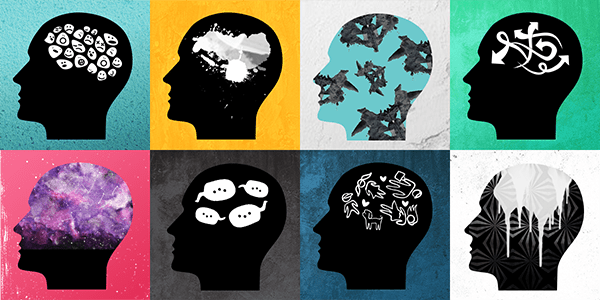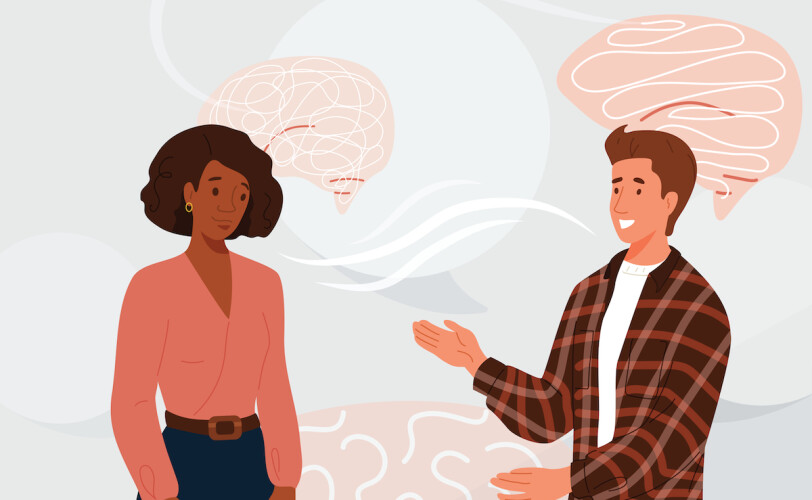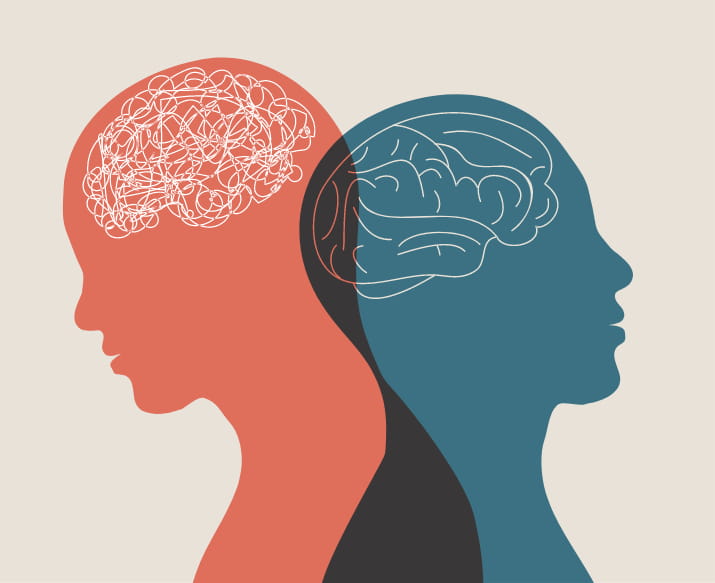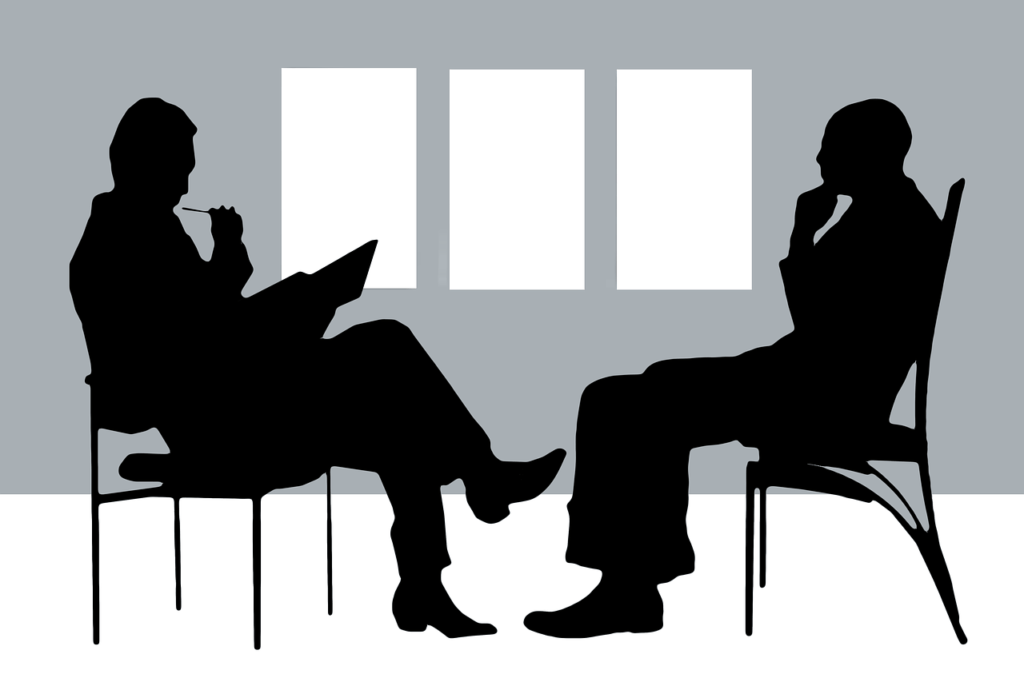Finding a therapist can feel like a daunting task. How do you know which one is right for you? And how do you even find therapists in your area? Don’t worry, we’re here to help! In this blog post, we will discuss some tips for choosing a licensed therapist near you. We’ll also provide a list of resources to help you get started. So read on and find the perfect therapist for you.
Contents
- 1 What Does “Licensed Therapist Near Me” Mean?
- 2 Types of Therapy Used By Licenced Therapists
- 2.1 Cognitive Behavioral Therapy (CBT)
- 2.2 Dialectical Behavior Therapy (DBT)
- 2.3 Psychodynamic Therapy
- 2.4 Marriage and Family Therapy
- 2.5 Interpersonal Therapy
- 2.6 Humanistic Therapy
- 2.7 Holistic Therapy
- 2.8 Art Therapy
- 2.9 Music Therapy
- 2.10 Animal-Assisted Therapy
- 2.11 Emotionally Focused Therapy
- 2.12 Strength-Based Therapy
- 3 How To Find Licenced Therapists Near You?
- 4 Tips To Keep In Mind While Consulting ” Licensed Therapist Near You”
- 5 Qualities of a Licensed Therapist Near You
- 6 Questions To Ask “Licensed Therapist Near You”
- 7 Benefits of Visiting “Therapist Near You”
- 8 Limitations of Visting ” Licensed Therapist Near You”
- 9 Conclusion
What Does “Licensed Therapist Near Me” Mean?
 A licensed therapist near me is a professional who has completed accredited training in order to provide therapy. This usually includes a master’s degree or doctoral degree in counseling, psychology, or social work. Licensed therapists are required to complete continuing education credits in order to maintain their license.
A licensed therapist near me is a professional who has completed accredited training in order to provide therapy. This usually includes a master’s degree or doctoral degree in counseling, psychology, or social work. Licensed therapists are required to complete continuing education credits in order to maintain their license.
A licensed therapist also has a license from their state to practice therapy. This means that they have met all the requirements set by the state in order to be a therapist. Each state has different requirements, but they typically include completing an accredited program, passing a state exam, and completing continuing education credits.
If you are looking for a therapist, it is important to make sure that they are licensed in your state. You can usually find this information on their website or by contacting them directly. Once you have found a licensed therapist near you, there are some other things to keep in mind when choosing the right one for you.
There may be also many different “types” of therapists to choose from. It’s important that you find one that specializes in the type of therapy you’re looking for. For example, if you’re struggling with anxiety, you may want to find a therapist who specializes in cognitive-behavioral therapy (CBT). If you’re going through a divorce, you may want to find a therapist who specializes in marriage and family counseling.
It’s also important to make sure that the therapist is a good fit for you personally. You should feel comfortable talking to them and they should be able to understand your needs. You can usually get a sense of this by reading their bio or by talking to them on the phone or in person.
Types of Therapy Used By Licenced Therapists

There are many different types of therapy that licensed therapists use to help their patients. Some of the most common types of therapy used by therapists include:
Cognitive Behavioral Therapy (CBT)
Cogntive behavioral therapy is a type of therapy that focuses on helping the patient to change their negative thoughts and behaviors. This type of therapy has been shown to be effective in treating many different mental health conditions, such as anxiety and depression. In CBT, this type of therapist will help you to identify your negative thoughts and behaviors and then work with you to change them.
Dialectical Behavior Therapy (DBT)
Dialectical behavior therapy is a type of cognitive-behavioral therapy that focuses on helping patients to cope with their emotions. This type of therapy has been shown to be effective in treating conditions such as anxiety, depression, and eating disorders. In DBT, this type of therapist will help you to learn how to deal with your emotions in a healthy way. There are many different types of therapists out there, so it’s important to find one that is a good fit for you.
Psychodynamic Therapy
Psychodynamic therapy is a type of therapy that focuses on the unconscious mind. This type of therapy has been shown to be effective in treating conditions such as depression and anxiety. Psychodynamic therapy, this type of therapist will help you to understand your unconscious thoughts and feelings. There are many different types of therapists out there, so it’s important to find one that is a good fit for you.
Marriage and Family Therapy
Marriage therapy is a type of therapy that focuses on helping families to communicate and interact with each other. This type of therapy has been shown to be effective in treating conditions such as marital conflict, divorce, and parenting issues. In marriage and family therapy, this type of therapist will help you to improve your communication and interaction skills. There are many different types of therapists out there, so it’s important to find one that is a good fit for you.
Interpersonal Therapy
Interpersonal therapy is a type of therapy that focuses on helping you to improve your relationships with others. This type of therapy has been shown to be effective in treating conditions such as depression and anxiety. In interpersonal therapy, this type of therapist will help you to understand your thoughts and feelings about your relationships. Also will help you to learn how to communicate and interact with others in a healthy way.
Humanistic Therapy
Humanistic therapy is a type of therapy that focuses on your personal growth and development. This type of therapy has been shown to be effective in treating conditions such as depression, anxiety, and stress. In humanistic therapy, this type of therapist will help you to understand your thoughts and feelings. Also will help you to develop a positive sense of self. Humanistic therapy also emphasizes the importance of developing a healthy relationship with yourself. There are many different types of therapists out there, so it’s important to find one that is a good fit for you.
Holistic Therapy
Holistic therapy is a type of therapy that takes into account the whole person. This includes physical, mental, emotional, spiritual, and social aspects. Holistic therapists use a variety of techniques to treat their clients. Also, Holistic therapy is also sometimes called integrative or alternative therapy.
Holistic therapy also focuses on the connection between mind and body. This means that holistic therapists view the body and mind as interconnected. This type of therapy can be beneficial for people who have chronic pain or other conditions that may be caused or worsened by stress. Holistic therapy can also help people who want to learn how to manage their stress in a healthy way.
Art Therapy
Art therapy is a type of therapy that uses art as a way to express your thoughts and feelings. This type of therapy has been shown to be effective in treating conditions such as depression, anxiety, and trauma. If you are interested in finding a therapist who offers art therapy, you can search for “licensed therapist near me” or “art therapy near me.” Also, be sure to check with your insurance provider to see if art therapy is covered under your plan.
Music Therapy
Music therapy is the use of music to address the physical, emotional, cognitive, and social needs of individuals. This music therapy is an established health profession that uses music interventions to accomplish individualized goals within a therapeutic relationship.
Music therapists are trained in both music and psychology/psychiatry and use their skills to assess client needs and design appropriate treatment plans. They work with clients of all ages and abilities in a variety of settings, including hospitals, nursing homes, schools, mental health facilities, correctional institutions, and private practice.
Animal-Assisted Therapy
Animal-assisted therapy (AAT) is a type of therapy that involves animals as a form of treatment. AAT can be used to help people with physical, mental, or emotional disorders.
Also, AAT has been shown to improve the well-being of people with Alzheimer’s disease, autism, anxiety disorders, and other conditions. AAT can also help people who are recovering from an injury or illness. There are also many benefits for the people who provide AAT, such as increased empathy and decreased stress. AAT is typically provided by a trained therapist or other professional, such as a licensed mental health counselor, social worker, or psychologist.
Emotionally Focused Therapy
EmoFocTherapy is a short-term, evidence-based therapy for couples. It was developed in the 1980s by Dr. Sue Johnson and Dr. Les Greenberg. Emotionally focused therapy is based on the idea that our emotions are important regulators of our behavior and relationships.
EFT helps couples to understand and change the emotional patterns that are keeping them stuck in negative cycles of interaction. EFT has been shown to be effective in over 70% of cases, and it is one of the most researched therapies for couples. It may also mean fewer relapses and improved satisfaction with the relationship long-term.
Strength-Based Therapy
Strength-based therapy is a type of therapy that focuses on the strengths and resiliency of individuals, families, and communities. This approach has its roots in social work, but it is also used in psychology, counseling, and other helping professions.
The strength-based approach is built on the belief that all people have strengths and resources that they can use to overcome challenges and achieve their goals. This approach is often used with people who have experienced trauma or who are dealing with chronic stressors. There may be also many benefits for the therapist, such as increased empathy and decreased stress.
If you’re looking for a therapist, there are many different types to choose from. It’s important to find one that is trained in the type of therapy that you’re interested in. There are many different approaches to therapy, and each one has its own benefits. You can talk to your doctor or mental health professional about which type of therapy might be right for you.
How To Find Licenced Therapists Near You?

Finding a therapist can feel like a daunting task, but it doesn’t have to be. Here are a few tips to help you find the right therapist for you:
Know What You Want
You should always know what you want from therapy. This will help you narrow down your search and find a therapist who specializes in the type of therapy you’re looking for. There may be many different types of therapy, but not all of them will be right for you. It also might be helpful to read about different types of therapy so you can learn more about them.
Do Some Research
After you know what you want from therapy, you can start doing some research. You can ask your friends or family if they know any good therapists, or you can look online. There are many websites that allow you to search for therapists in your area. Once you’ve found a few therapists, you can read their bios and see if they’re a good fit for you.
Make A List Of Questions
When you’ve found a few therapists that you think might be a good fit, it’s time to make a list of questions. This list should include questions about the therapist’s experience, approach to therapy, and fees. You can also ask about the therapist’s availability and how long they’ve been in practice.
Schedule A Consultation
After you’ve made a list of questions, it’s time to schedule a consultation. This is a meeting between you and the therapist to see if you’re a good fit for each other. During the consultation, you’ll have a chance to ask your questions and get to know the therapist. You’ll also be able to decide if you want to continue working with them.
See For Referrals
There are many different ways to find a therapist. You can ask your friends or family for referrals, or you can look online. You can also talk to your doctor or mental health professional about which type of therapy might be right for you. If you’re not sure where to start, there are many resources available to help you find the right therapist for you.
See Recommendations
Recommendations are a good place to start when you’re looking for a therapist. If you have friends or family members who’ve seen a therapist before, ask them for recommendations. Once you have a few names, you can start looking into each one to see if they might be a good fit for you. Also, your doctor or mental health professional may be able to give you some recommendations.
Look Online
There are many different websites that allow you to search for therapists in your area. Once you’ve found a few therapists, you can read their bios and see if they’re a good fit for you. You can also look at online reviews to see what other people have said about the therapist.
Research the Therapists’ Credentials
When you’re looking for a therapist, it’s important to make sure that they are licensed and qualified to help you with your specific needs. You can usually find this information on their website or by calling their office. There may be different types of therapists, but not all of them will have the same credentials.
Consider Your Budget
One of the most important factors in choosing a therapist is whether or not they accept your insurance. If you don’t have insurance, or if your insurance doesn’t cover therapy, you’ll need to pay for therapy out of pocket. This can be expensive, so it’s important to consider your budget when choosing a therapist.
Check Availability
It’s important to find a therapist who has availability that works for you. You’ll need to consider the days and times that you’re available, as well as how often you want to see the therapist. Some therapists only see patients once a week, while others see them multiple times a week.
Location
Another important factor to consider when choosing a therapist is location. You’ll need to find a therapist who is close to your home or office so that it’s easy for you to get to your appointments. You may also want to find a therapist who is in a convenient location for other activities, such as shopping or errands.
Tips To Keep In Mind While Consulting ” Licensed Therapist Near You”

There are many tips to keep in mind while you’re consulting a “therapist near you.” Here are a few:
Be Comfortable
Comfort is something that you should definitely keep in mind while you’re consulting a therapist. You want to make sure that you’re comfortable with the therapist and that you feel like you can trust them. Sometimes there are also many things that you may want to talk about with a therapist that you don’t feel comfortable discussing with other people. It may also be helpful to find a therapist who specializes in the type of therapy that you’re looking for.
Be Honest
It’s also important, to be honest with your therapist. You want to make sure that you’re open and honest about what you’re looking for in therapy. This will help the therapist understand your needs and help them provide the best possible care for you. Honesty is also important in building trust between you and your therapist. Also, always try to be respectful of your therapist’s time and boundaries.
Take Your Time
Don’t feel like you have to rush into anything when you’re looking for a therapist. It’s important to take your time and find the right therapist for you. This is a decision that you should definitely not take lightly. There are many different therapists out there, so it may take some time to find the one that’s right for you. But, if you keep these tips in mind, you’ll be on your way to finding the perfect therapist for you.
Be Open-Minded
You should also be open-minded when you’re looking for a therapist. You may want to find a therapist who has a lot of experience, but you should also be open to trying new things. There are many different types of therapy, and you may find that one type works better for you than another. So, don’t be afraid to try something new.
Find Someone You Can Trust
One of the most important things to keep in mind when looking for a therapist is to find someone you can trust. This is someone who you’ll be sharing very personal information with, so it’s important that you feel like you can trust them. It may take some time to build trust with your therapist, but it’s important to make sure that they’re someone you feel comfortable with.
Try Different Therapists
If you don’t feel like the first therapist you see is a good fit, don’t be afraid to try someone else. It may take some time to find the right therapist for you, but it’s important to find someone with who you’re comfortable and who you feel you can trust. Try different therapists until you find the one that’s right for you. There may be different types of therapists that can help you with your specific needs.
Don’t Give Up
If you’ve been seeing a therapist for a while and you’re not feeling any better, don’t give up. It may take some time to see results from therapy, but it’s important to stick with it. You may also want to try a different type of therapy or a different therapist if you’re not seeing any results. Don’t give up on therapy, because it can be very beneficial. Also, there maybe be other factors that are affecting your mental health, such as stress from work or personal problems. If you’re having trouble in other areas of your life, it may be helpful to see a therapist to help you deal with these issues.
There are many different things to consider when choosing a therapist. These are just a few tips to keep in mind while you’re looking for a licensed therapist near you.
Qualities of a Licensed Therapist Near You

Qualities are important when choosing any type of professional, but they are especially important when choosing a therapist. After all, this is someone you will be trusting with your innermost thoughts and feelings. Here are some qualities to look for in a licensed therapist near you:
Empathy
Empathy is one of the main qualities you should look for in a therapist. This is someone who will be understanding your feelings and experiences. They should be able to see things from your perspective and offer helpful advice. Sometimes there may be also many different things going on in your life, and it may be difficult to talk about all of them. A good therapist will be patient and understand that you may not be ready to talk about certain things.
Compassion
A good therapist will also have compassion for their patients. This is someone who cares about helping you improve your life. They should want to see you succeed in therapy and reach your goals. Also, there maybe be times when you feel down, and a compassionate therapist will be there to support you.
Trustworthiness
As we mentioned before, trust is one of the most important things to look for in a therapist. This is someone who you will be sharing very personal information with, so it’s important that they are someone you can trust. A good way to gauge whether or not you can trust your therapist is by how well they keep confidentiality. If they have breached confidentiality in the past, it may be difficult to trust them. Also, make sure that they are licensed and have experience in the field.
Qualifications
It’s also important to make sure that your potential therapist is qualified to help you. This means that they should have experience in the field and be licensed. You can usually find this information on their website or by asking them directly. Also, make sure that they are up to date on the latest research in the field. This will ensure that they are using the most effective methods to help you.
Respect
Respect is also important in a therapist-patient relationship. Your therapist should respect your privacy and boundaries. They should also respect your time by being punctual for appointments and respecting the length of sessions. Another thing that respect includes is being respectful of your opinions and beliefs. Even if the therapist doesn’t agree with you, they should still respect your point of view.
Patience
Patience is another important quality in a therapist. Therapy can take time, so it’s important that your therapist is patient with you. They should understand that change takes time and shouldn’t try to rush you through the process. Patience is also one thing that you should look for in yourself. It’s important to be patient with the therapy process and understand that change takes time.
Listening Skills
Listening skills are also one of the qualities to look for in a therapist. This is someone who will be listening to you talk about your experiences and thoughts. They should be able to understand what you’re saying and offer helpful advice. Also, they should be able to listen without judgment. This means that they won’t judge you for your thoughts or experiences.
These are just a few of the qualities that you should look for in a licensed therapist near you. When choosing a therapist, it’s important to keep these things in mind. With so many different therapists out there, it may seem daunting to choose one. However, if you keep these qualities in mind, it will help narrow down your options and find the right therapist for you.
Questions To Ask “Licensed Therapist Near You”
There are many questions you should ask your potential therapist before beginning treatment. Here are a few examples:
-What is your approach to therapy?
-Do you specialize in any particular areas?
-How do you think I could benefit from therapy?
-What are your qualifications?
-How much do you charge per session?
-Do you accept insurance?
_Do you have experience treating people with my specific problem?_
-How long will it take to see results?
-What are the risks and benefits of therapy?
-What are your policies regarding confidentiality?
-Do you have any other suggestions for me?
These are just a few examples, but they should give you an idea of what type of information you should be looking for. Don’t be afraid to ask your potential therapist any questions that come to mind.
Benefits of Visiting “Therapist Near You”

There are many benefits of visiting a licensed therapist near you.
Convenience
One of the most obvious benefits is convenience. If you live in a rural area, it can be difficult to find a therapist who is willing to travel to see you. This is especially true if you need specialized care or treatment that not many therapists are trained to provide. Sometimes there may be also many therapists to choose from in your area, which can make it difficult to decide who to see. In this case, “therapist near you” search engines can be very helpful.
Helps To Build Trust
Another benefit of visiting a licensed therapist near you is that it can help build trust between you and your therapist. When you meet in person, it’s easier to get to know each other and build rapport. This can make therapy more effective overall since trust is such an important part of the therapeutic process. Also, if you ever need to see your therapist outside of regular therapy hours, it’s much easier to do so when they’re located near you.
Reduces Travel Time and Costs
If you live far away from the nearest city or town, visiting a licensed therapist near you can reduce travel time and costs. This is especially true if you don’t have your own transportation. In some cases, therapists may be willing to offer home visits if traveling is difficult for you.
Easier To Make Appointments
It’s usually easier to make appointments with therapists who are located near you. This is because they have more flexible schedules and can often accommodate last-minute appointment requests. Also, if you need to cancel or reschedule an appointment, it’s usually easier to do so with a therapist who is close by.
These are just a few of the benefits of visiting a licensed therapist near you. If you’re considering therapy, be sure to keep these things in mind. And remember, if you have any questions, don’t hesitate to ask your potential therapist.
Limitations of Visting ” Licensed Therapist Near You”
There are many limitations to visiting a therapist that is “near you.”
The first limitation is that you may not be able to find a therapist who specializes in the area of mental health that you are struggling with. For example, if you are dealing with depression, you may not be able to find a therapist who specializes in treating depression near you.
Secondly, even if you are able to find a licensed therapist near you who specializes in the area of mental health that you are struggling with, there is no guarantee that this therapist will be a good fit for you. It is important to remember that every individual is different and what works for one person may not work for another. This is why it is so important to do your research when choosing a therapist and to make sure that they are someone who you feel comfortable with.
Lastly, another limitation of only looking for a licensed therapist near you is that you may not be able to find one who accepts your insurance. This can be a major factor in whether or not you are able to see a therapist, so it is important to keep this in mind when searching for one.
If you are looking for a therapist, it is important to keep these limitations in mind. However, there are also many benefits to finding a licensed therapist near you.
Conclusion
Therapists are not all the same. They have different levels of experience, and education, and specialize in different areas. When looking for a therapist, it is important to find one that is a good fit for you and your needs. The tips above will help you choose the licensed therapist near you.
If you are still not sure where to start, there are many online directories that can help you find a licensed therapist near you. Once you have found a few therapists that look like a good fit, it is important to schedule an initial consultation with each one. This will give you an opportunity to ask questions, get to know them better, and see if they are someone you feel comfortable working with long-term.
If you’re struggling with mental health problems, know that you’re not alone. MantraCare is here to help you with these mental health disorders. We offer group therapy, self-help strategies, and professional help. Contact us today to learn more about how we can help you! Helping someone with these disorders can be difficult, but it is important to encourage professional treatment, listen and be supportive, and encourage healthy coping mechanisms. MantraCare is here to help you every step of the way. You can also book a therapy or download our free Android or iOS app.


